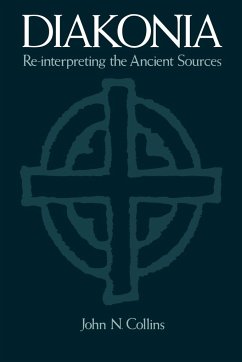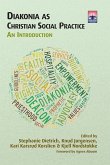This is the first comprehensive study of the Greek word ''diakonia,'' from which the word ''deacon'' is derived. Diakonia and its cognates appear frequently throughout the New Testament, but its precise meaning has long been disputed. Today, it is usually translated ''service'' or ''ministry.'' As Collins shows, this understanding of diakonia has been important to the development of a modern consensus about the nature of Christian ministry. Based on theunderstanding that diakonia is ''service'' and that the diakonos (deacon) is a ''servant,'' nearly all Christian bodies today agree that the central idea of ministry is that of helping the needy, and that the ''servant'' church should be humbly devoted to helping the world, after the model of Jesus. Collinsconducts an exhaustive study of diakonia in Christian and non-Christian sources from about 200 BCE to 200 CE. He finds that in all such sources the word is used to mean ''messenger'' or ''emissary,'' and has no implications of humility or of helping the needy. This discovery undermines much of the theological discussion of ministry that has taken place over the past fifty years.








